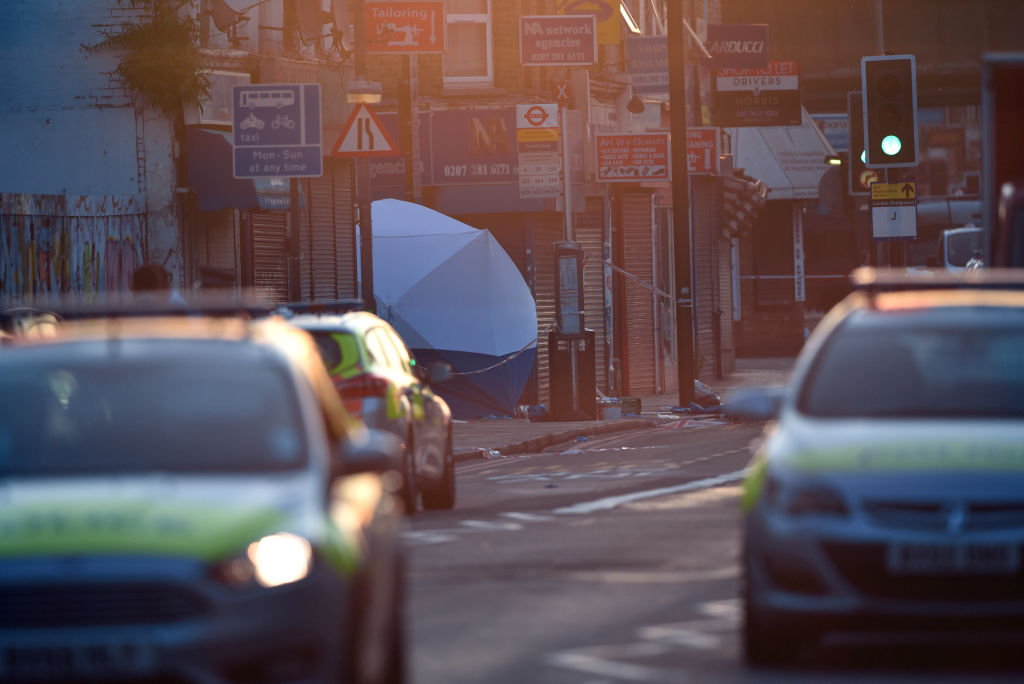‘Another week, another grotesque terror attack on peaceful civilians’, says the Daily Mail. While in the Finsbury Park attack the alleged perpetrator ‘may have different coloured skin’ from those who have carried out previous atrocities, ‘their motivation was the same – to sow hate and division in our tolerant society’. Already, the Mail warns, ‘extremist groups’ are trying to use the attack ‘for their own malign political purposes’. The paper also hits out at ‘the usual crowd of Left-wing celebrity attention-seekers’ who have tried to pin the blame for what happened on the media. To do so, says the Mail, ‘is not only absurd, it’s also deeply offensive’. Instead, the proper response ‘is not to apportion blame but to present a show of unity and defiance’. After all, the Mail concludes, ‘if we allow the terrorists to divide us – setting one racial group against another – they have won’.
‘After so many tragedies,’ the Times says, the mood in Britain is ‘febrile, wary and volatile’. The paper warns that the shooting of one man five years ago ‘sparked riots across the capital that caught government and Scotland Yard off guard’. In the wake of the Finsbury park attack, the ‘challenge’ for the government ‘is to prevent’ history repeating itself. It’s true, as the Met Police commissioner Cressida Dick points out, that the part of north London where the attack unfolded is a ‘highly- integrated’ place. ‘But in less affluent parts of London, Birmingham and Greater Manchester, Muslim and non-Muslim communities co-exist in entrenched mutual suspicion’ the Times warns. ‘In such an atmosphere,’ the Times argues, ‘the danger is that an attack like Sunday’s sparks a wider conflagration’.
For the Sun, the Finsbury Park attack ‘is every bit as evil as those of Isis’. The terrible incident also hands the terror group ‘another ‘victory”, the paper says. After all, ‘a religious war is what they want’. The Sun says that ‘the ignorant misconception that all Muslims are to blame for Islamist slaughter must be defeated’. This ‘bigotry’, says the Sun, is ‘fuelled by the sense of a Government unable to prevent attacks’ and the paper says it is vital that the security services have the means to crack down on extremists. Yet at the same time it’s important as well to ‘stop pandering to a vocal hardcore who do back terror’, says the Sun, which asks why protesters were allowed to march through London at the weekend holding Hezbollah flags. The likes of Abu Hamza and Anjem Choudary were also allowed to spread poison for ‘too long’ in Britain, says the Sun. The same cannot be allowed to happen again: ‘To keep our country liberal and tolerant we must be less liberal with those who would destroy us.’.
The incident in Finsbury Park looks to be a vicious and terrifying echo of the London Bridge attack, says the Guardian. Once again, the reaction – from the local community and police and politicians, including Jeremy Corbyn – offers the ‘kind of urgent compassion and generosity’ that is much needed. The paper also praises the Prime Minister’s response, saying that Theresa May ‘managed to do the right thing with reasonable timing’ this time around. There were accusations in the wake of the attack that the police response – and the decision to label this incident an act of terror – could have been swifter. But while these criticisms might not be deserved, the Guardian says that ‘one reason for it must be the daily experience of many Muslims, living in a constant atmosphere of Islamophobia’. This, the paper suggests, can be found by Muslims hoping to apply for jobs and housing or ‘in the sharp rise of religious hate crime’. ‘The prime minister made a belated attempt to acknowledge’ the danger of Islamophobia in Downing Street yesterday. This ‘is an advance’, argues the Guardian. But the Government’s response to countering extremism remains ‘tangled’, the paper suggests – and risks mixing together actions and ideas. This is a mistake, warns the Guardian, and it’s time for a rethink of the way in which the government deals with the terror threat in order to ensure that communities do not end up marginalised.







Comments